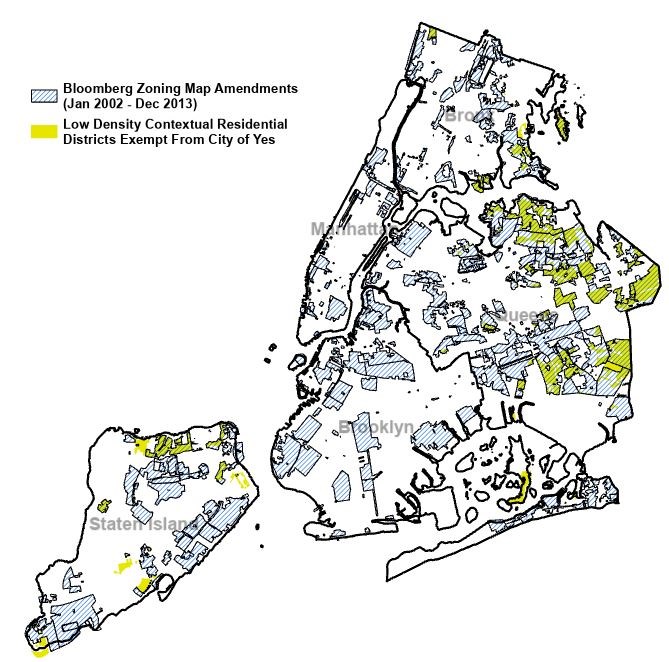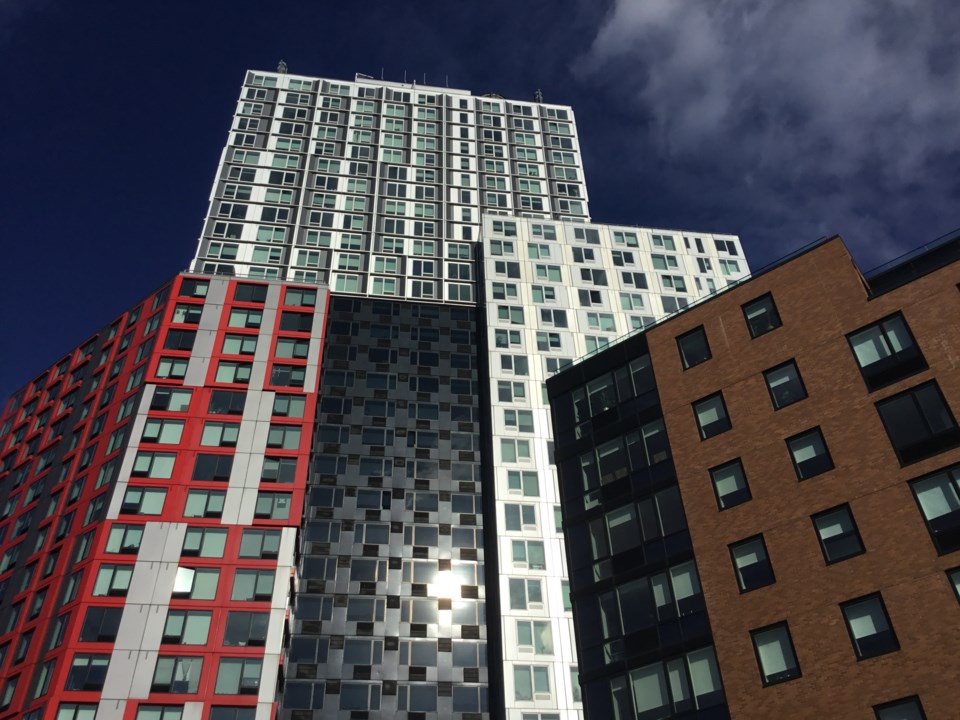New York City Mayor Eric Adams and the City Council on Thursday reached an agreement on the “City of Yes for Housing Opportunity” proposal, a zoning plan that will add about 80,000 new apartment units to tackle the city's housing crisis.
The initiative, approved by the New York City Council’s subcommittee on Zoning and Franchises and the Committee on Land Use, is a slightly pared back version of the original plan, which looked to create about 109,000 units. The new plan, which will add thousands of new homes over the next 15 years, comes with a $5 billion commitment for infrastructure upgrades, according to a press release.
Faced with a 1.4% rental vacancy rate, the proposal will allow for increased housing construction in neighborhoods citywide. Officials hope the plan will lower rental costs for New Yorkers across all five boroughs.
“Everyday New Yorkers have carried the burden of a generational housing crisis for far too long,” said Adams. “Thanks to our shared commitment, we have reached an agreement on a historic plan that could open the doors to a little more housing in every neighborhood in our city — with no borough, block or backyard left behind. If passed, New York City will once again serve as a model to the nation.”
Governor Kathy Hochul said it was crucial that the city add more residential units.
“New York has a housing affordability crisis, and there’s only one way out: build more housing,” said Hochul. “This partnership is a testament to what can be achieved when leaders at all levels of government unite to address urgent challenges.

Brooklyn Borough President Antonio Reynoso was not convinced that the agreement is the solution Adams and Hochul say it is. He said the exemption of R1-2A, R2A, and R3A contextual districts, or western Queens and parts of Staten Island, meant that some New Yorkers would continue to be excluded from new housing opportunities.
"There will be effectively no new housing options for people to live in these communities – which means these neighborhoods remain exclusive and the legacies of segregation and exclusionary zoning live on unfettered," he said. "The housing pressure on every other neighborhood will go up – which means if Queens or Staten Island doesn’t grow, Brooklyn is asked to do more than our fair share."
Other parts of the pared back proposal include a tiered parking mandates and tighter rules on the building of accessory dwelling units and housing near transit centers, among other things.
Funding commitments made in the City of Yes initiative include a $1 billion in city housing capital investment, $2 billion for infrastructure projects, including sewer and flood improvements, street upgrades and public spaces and $1 billion over 10 years for tenant protections, rental vouchers and neighborhood planning.
The scale of the City of Yes proposal surpasses all housing created through rezonings under the Bloomberg and de Blasio administrations combined, the press release said. Officials described the initiative as a transformative step toward alleviating New York’s housing crisis and meeting the needs of a growing population.
The plan now heads to the City Planning Commission for approval. The whole City Council will likely vote on the propsal in early December.




